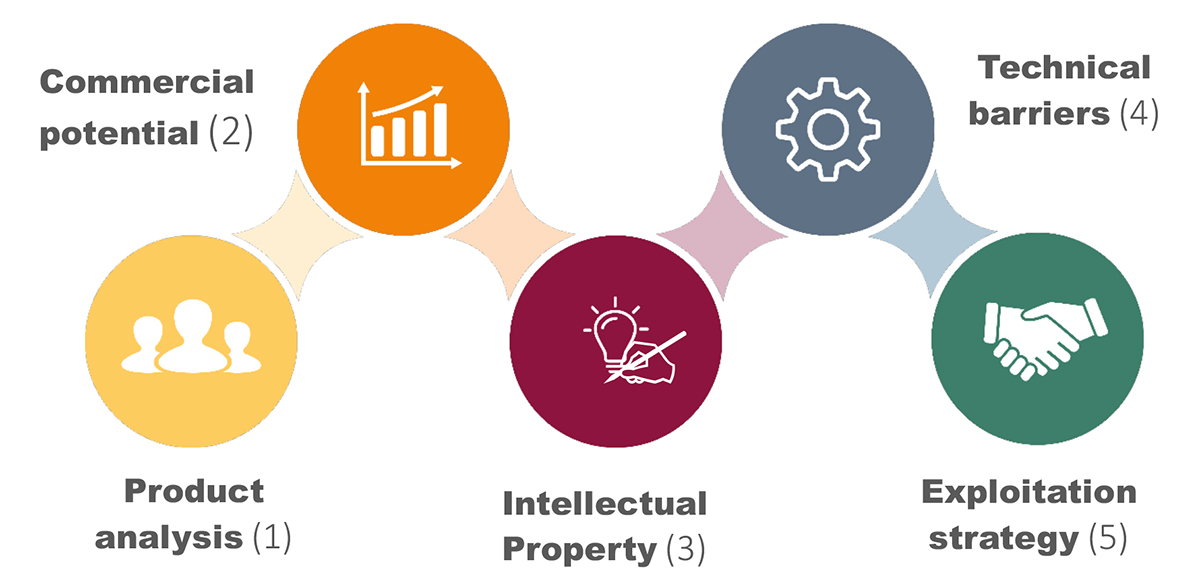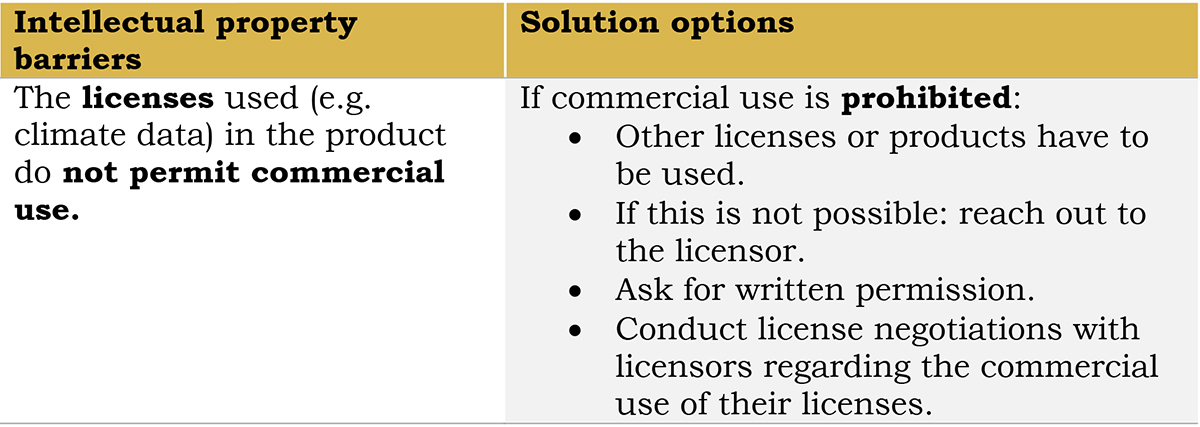Julius Pröll from the Climate Service Center Germany turns our attention to the importance of bridging the gap between research institutions and commercial multipliers of climate services
Global climate change has very different regional impacts that are already being felt today (IPCC 2019, IPCC 2018). For decision-makers in politics, administration and business, this means an increasing need for specific information to adapt adequately to the current and future impacts of climate change. The Climate Service Center Germany (GERICS) works to address these needs by developing user-oriented information and consulting services, verifying them in practice and striving for their operational use by companies, such as consultancies or engineering offices.
To further promote operational climate services and scale-up their societal use, GERICS has analysed in a project called “Bridging the Gap”, how climate services can be transferred from research institutions to commercial providers. The process behind this transfer is commonly referred to as technology transfer (Bräutigam & Gerybadze 2011). Successful technology transfer enables research institutions to increase the societal influence of their own research and to actively transfer the developed prototypes to operational providers and, thus, multiply them.
There is consensus in the political environment that the potential of technology transfer in non-university research is not yet sufficiently exploited (Otto et al. 2015). Depending on the service or product, specific barriers and, thus, new challenges can arise and this is particularly true in a field as youthful as climate services, where experience relating to technology transfer is limited.
GERICS, therefore, extended the commonly used and established technology transfer process and its findings to the area of climate services to identify specific barriers related to the transfer of climate services and possible solutions to overcome them. Since several technology transfer procedures exist but none for climate services, in particular, a new procedure has been developed (see figure 1).

Parts of the procedure can be carried out simultaneously (e.g. the evaluation of the commercial potential and the analysis of the intellectual property framework). It can be described in the following five steps:
• Internal product analysis with product developers (1).
• Evaluation of the commercial potential of the climate service (2).
• Analysis of the intellectual property framework conditions (3).
• Analysis of the technical framework and potential adjustments (4).
• Establishing a commercial exploitation strategy for the climate service (5).
As part of the project Bridging the Gap, various methods, such as the “Business Model Canvas”, “Workshops” and “Qualitative Interviews” have been applied to identify barriers within the climate service technology procedure. By doing so, barriers were revealed in the areas of commercial potential, intellectual property (IP) and technical framework. For example, parts of the commercial potential of climate services e.g. willingness to pay, are not described in known literature and, therefore, identified as a barrier to climate service technology transfer.

To research the commercial potential, interviews were conducted with companies in Germany. The results showed that some companies consider the topic of adaptation to climate change as relevant to them and that they are willing to pay for climate service products. Hence, the commercial potential of climate service products, in general, exists.
Also, further identified barriers, such as an unawareness of potential multipliers (companies, who sell a licensed climate service product) of climate services, should be identified and addressed by scientific institutions early on during the prototype development process.
Moreover, not only should the requirements of the end-user be taken into account by research institutions, but also those of the potential multiplier, to facilitate an increased societal relevant climate service technology transfer in the future.
Overall, for future climate service technology transfer, the identified barriers can probably be overcome when taken into account early on during development and are coordinated by a technology transfer manager. In order to support this, a solution catalogue, containing barriers and their solutions has been developed (see an excerpt in figure 2).
Furthermore, strategic support for technology transfer from the management must exist and an entrepreneurship culture should be promoted. By doing so, the societal impact of climate services can be increased by research institutions.
References
1.) IPCC (2019): IPCC Special Report on Climate Change, Desertification, Land Degradation, Sustainable Land Management, Food Security, and Greenhouse gas fluxes in Terrestrial Ecosystems, Summary for Policy Makers.
2.) IPCC, (2018): Global Warming of 1.5°C. An IPCC Special Report on the impacts of global warming of 1.5°C above pre-industrial levels and related global greenhouse gas emission pathways, in the context of strengthening the global response to the threat of climate change, sustainable development, and efforts to eradicate poverty [Masson-Delmotte, V., P. Zhai, H.-O. Pörtner, D. Roberts, J. Skea, P.R. Shukla, A. Pirani, W. Moufouma-Okia, C. Péan, R. Pidcock, S. Connors, J.B.R. Matthews, Y. Chen, X. Zhou, M.I. Gomis, E. Lonnoy, T. Maycock, M.Tignor, and T. Waterfield (eds.)]. In Press.
3.) Bräutigam, K-R., Gerybadze, A. (2011): Wissens- und Technologietransfer als Innovationstreiber, Mit Beispielen aus der Materialforschung. Springer Heidelberg Dordrecht London New-York.
4.) Otto, M., Scherer, A. (2015): Technologietransfer in eigenständigen Organisationsformen: Ein Leitfaden für die außeruniversitäre Forschung, Potsdam, Deutsches GeoForschungsZentrum.
*Please note: This is a commercial profile











